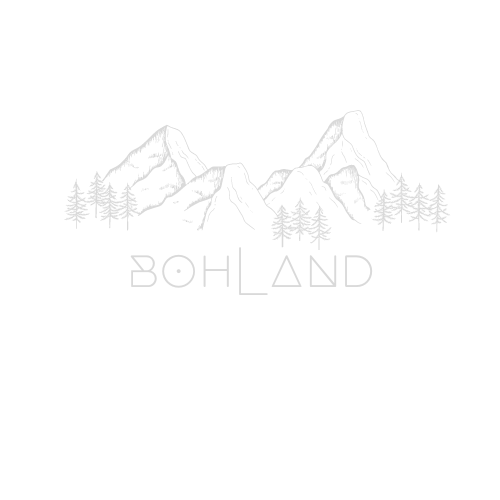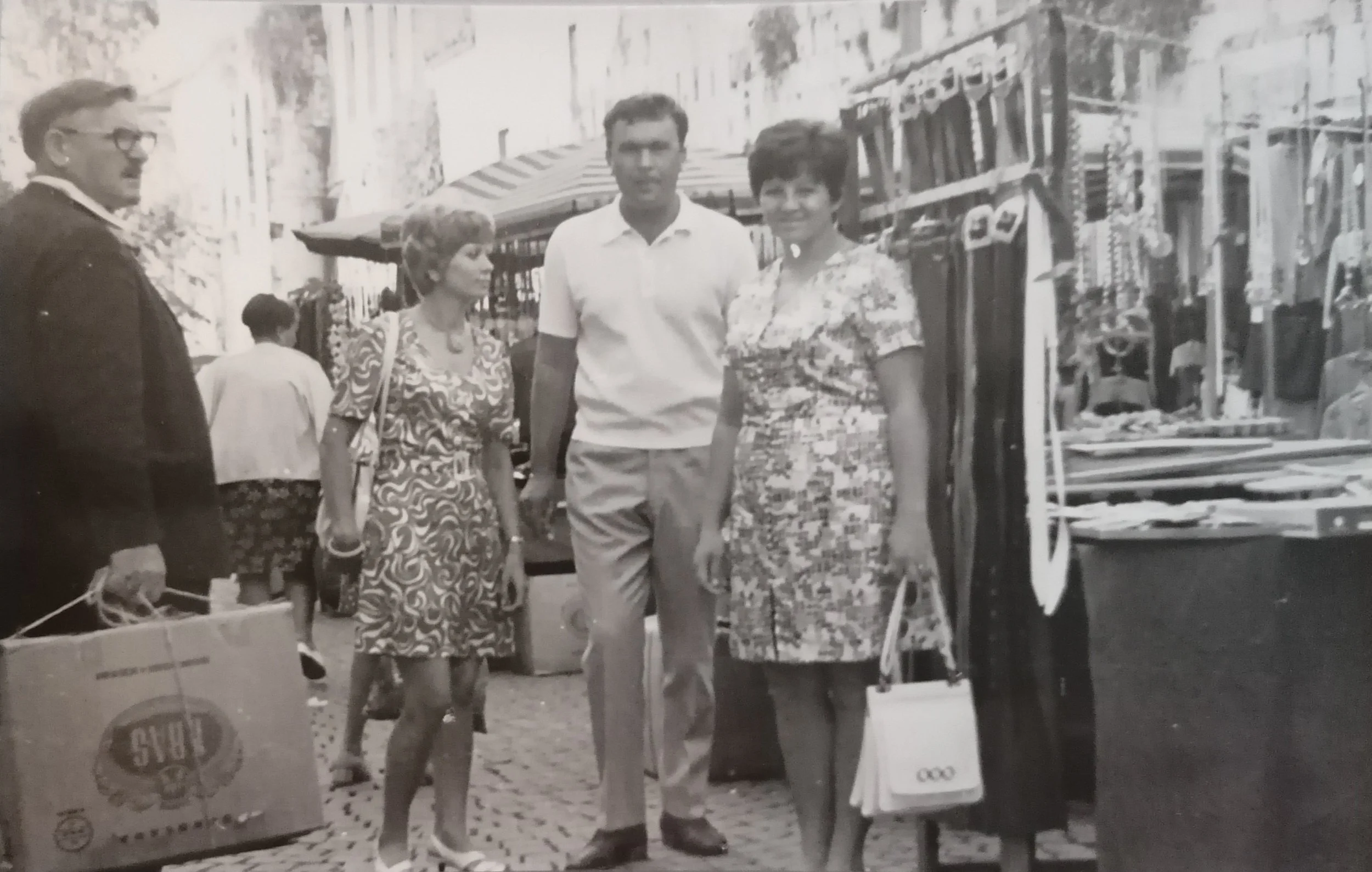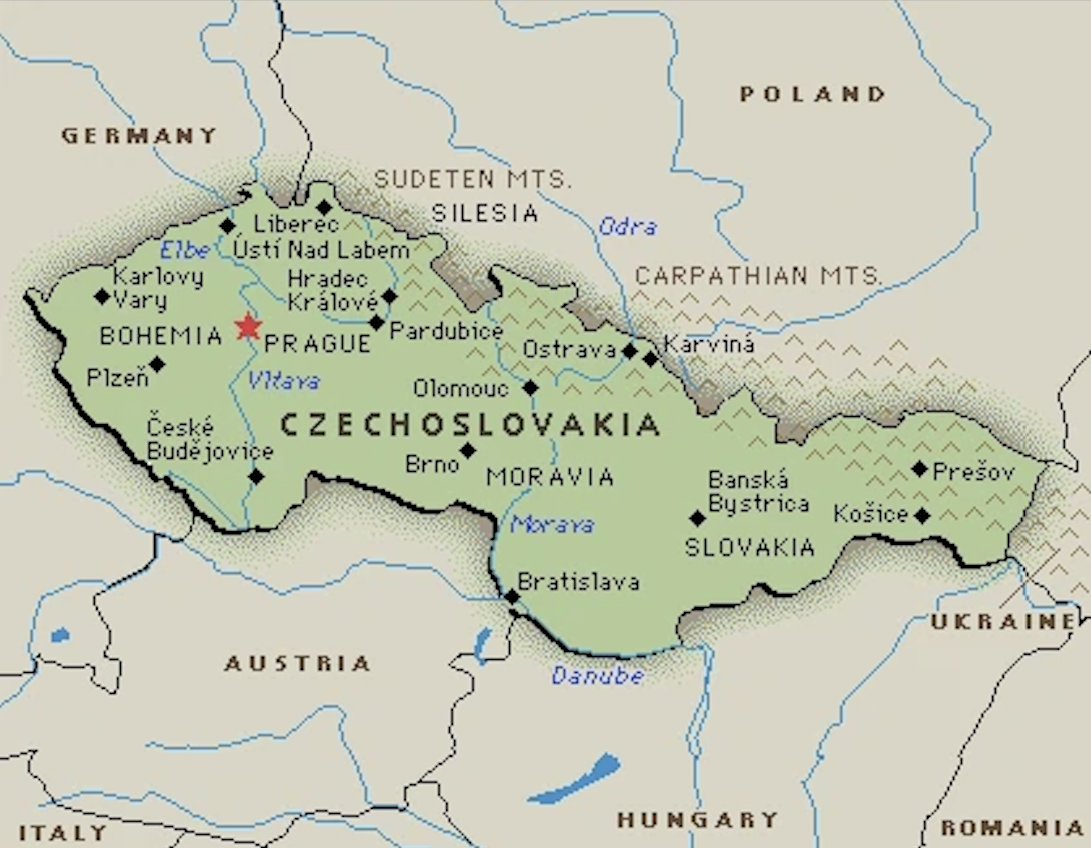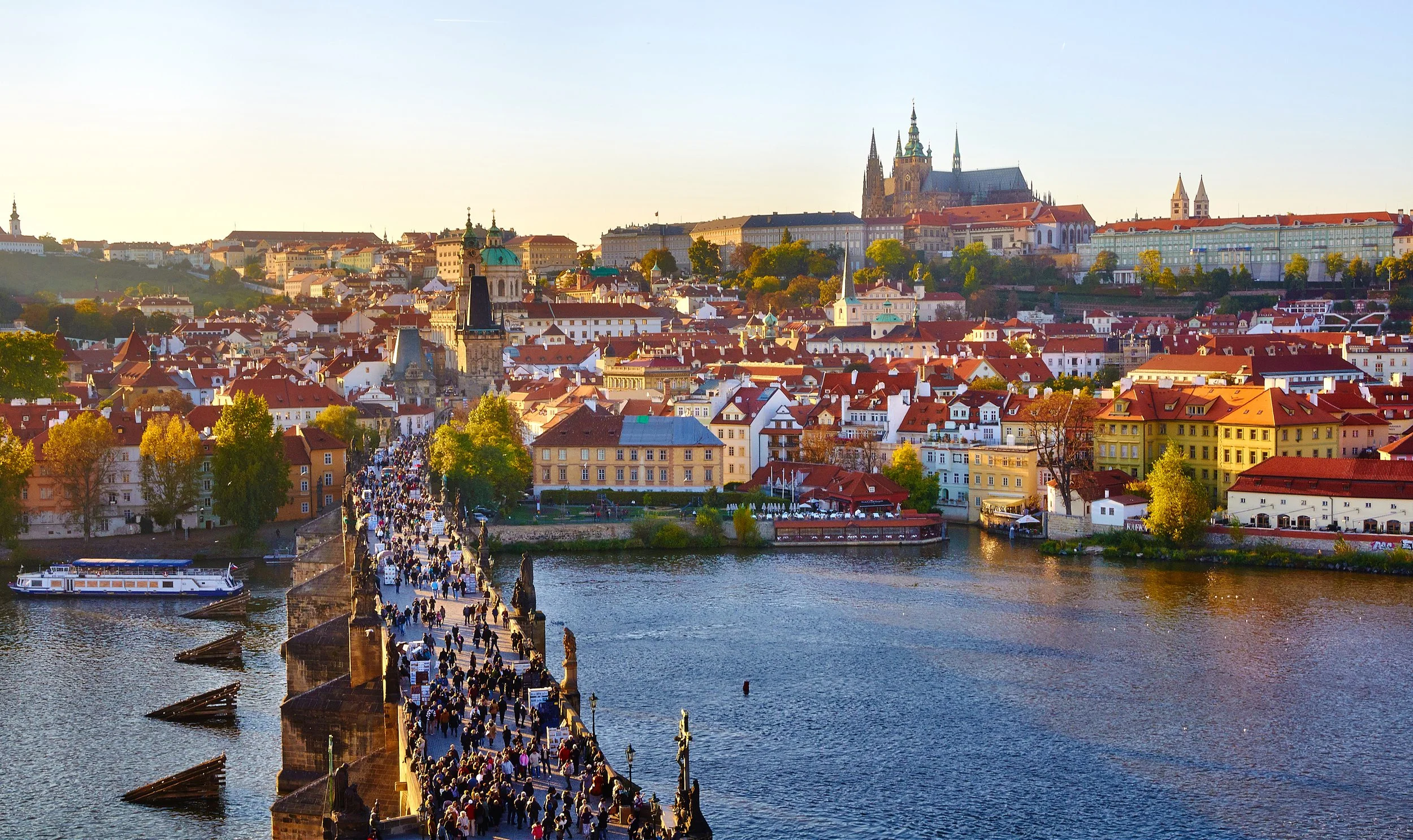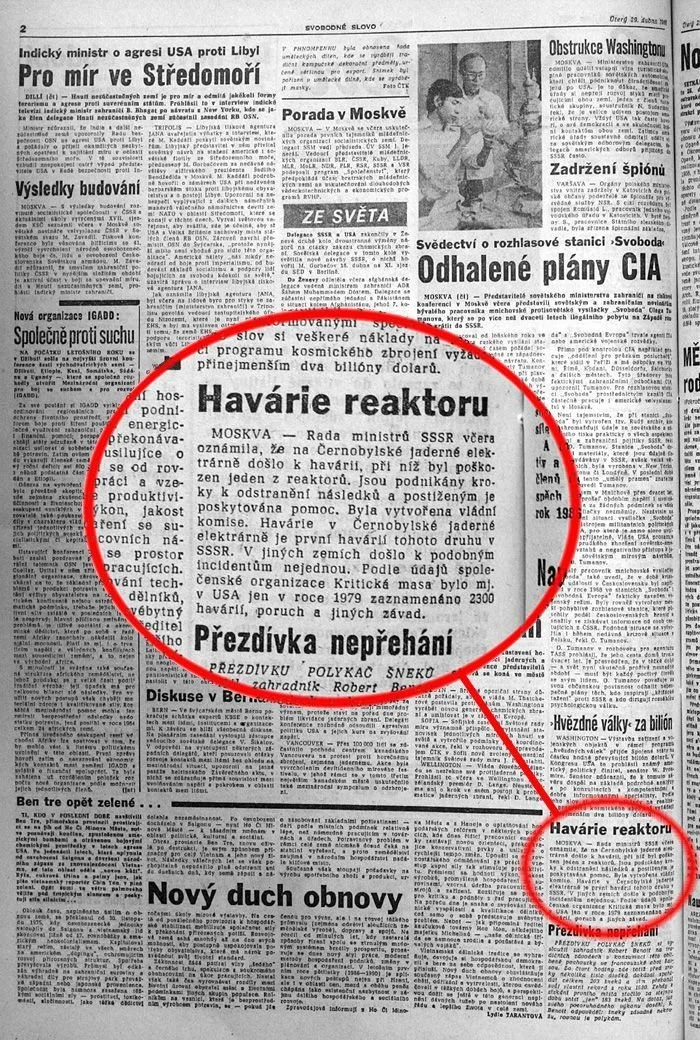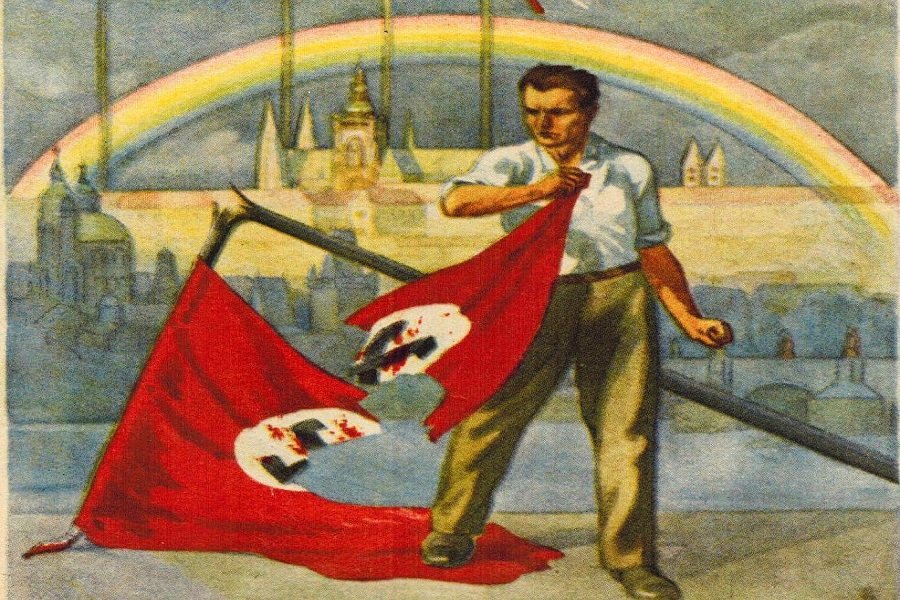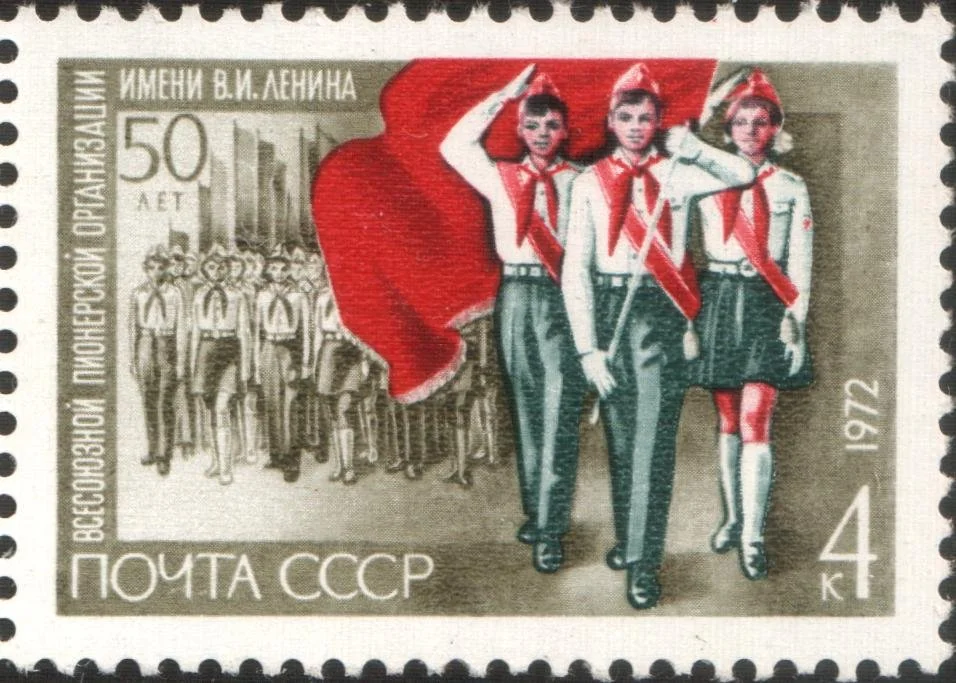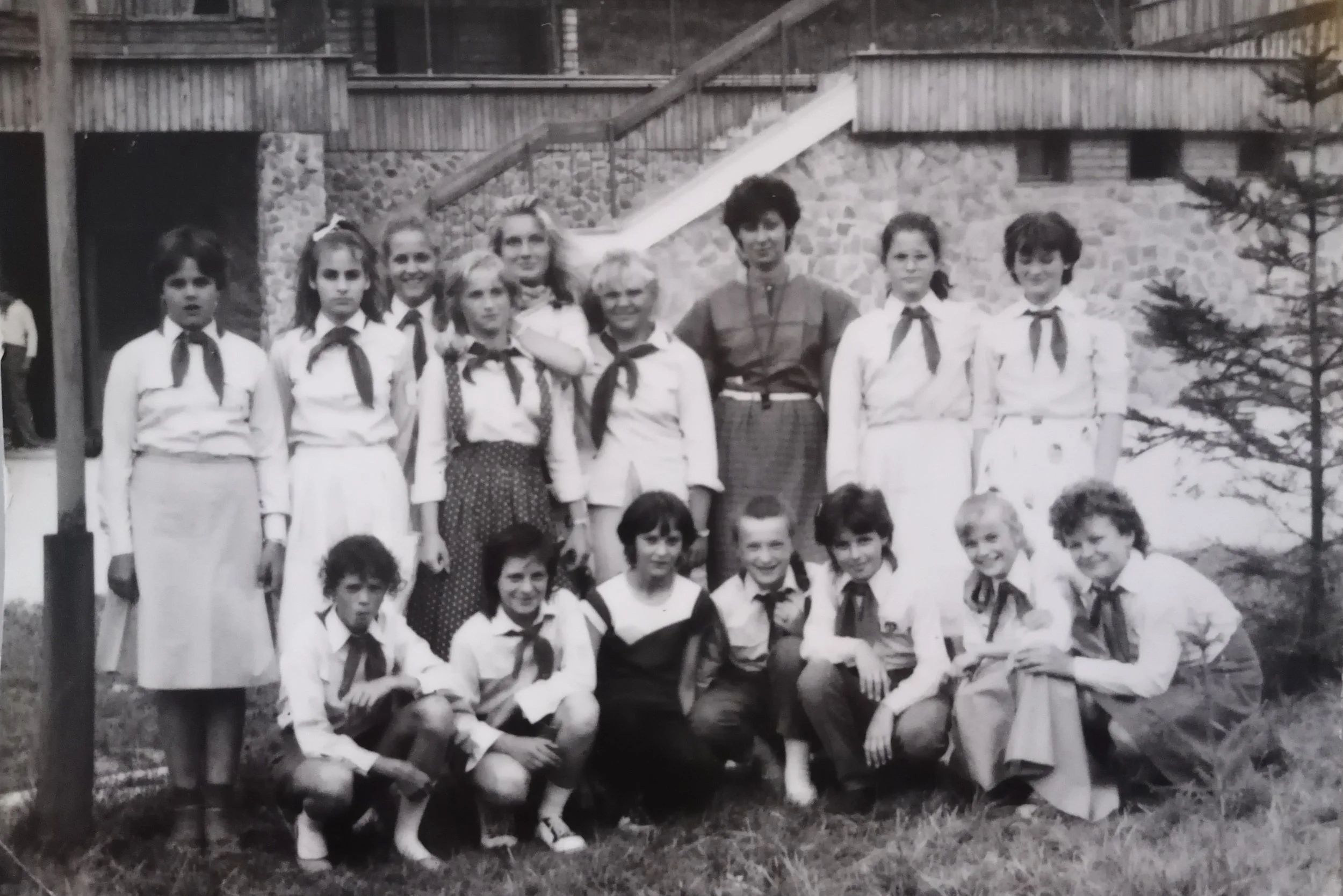I interviewed my grandparents about life in Czechoslovakia during Soviet Union
🇬🇧 ENGLISH TRANSLATION
| TABLE OF CONTENTS
1. Introduction
2. Why Czechoslovakia?
3. I interview my grandma about life during Soviet Union
4. Why did Czechoslovakia break up?
⇨ go to 🇸🇰 Slovakian translation
After the current political events, where we see history repeating itself, it came naturally for me to get more interested in the past, particularly about life during the Soviet Union. My grandparents and my mother lived in Slovakia (back then Czechoslovakia), during the Communist Regime, and very often they remember some events, that still blow my mind.
In this post, I want to enclose the most important moments that left a mark in history, and mostly in my grandparent's memory. You will find an interview with my grandma and the 20 years she lived under the Communist regime. Hopefully, while reading this, it will be an eye opener for some, with the message of not repeating the same mistakes of the past.
| Why Czechoslovakia?
A bit of history..
Czechoslovakia was the former country in Central Europe encompassing the historical lands of Bohemia, Moravia, and Slovakia. Czechoslovakia was formed from several provinces of the collapsing empire of Austria-Hungary in 1918, at the end of World War I. It was occupied by Nazi Germany in 1938–45 and was under Soviet domination from 1948 to 1989.
While Czechoslovakia was under the Soviet regime, the country’s new Communist leaders concentrated on making the state-run economy more productive while also stifling internal political dissent. Czechoslovakia in the 1970s and ’80s was one of the most prosperous, but also one of the more repressive countries in eastern Europe.
With the end of Communism and the re-emergence of democracy, after the so-called Velvet Revolution, disagreements between the two halves of the country escalated. In particular, Slovaks resisted the Czechs’ preference for rapid privatization of the country’s state-run industries. The results of parliamentary elections in June 1992 highlighted these differences, and talks between Czech and Slovak leaders later that year resulted in the peaceful dissolution of the Czechoslovak federation. As part of the so-called Velvet Divorce, two new countries were created —the Czech Republic and Slovakia, on January 1, 1993.
Slovakia and Czech Republic today (language - society - currency - economy & tourism)
The current two nations are much closer to each other than ever before. Slovakia and Czech Republic are in very good terms, we can say that we consider each other like siblings. The language is basically the same, just the accent and some words are a bit different. When we watch Slovakian TV, there are many Czech programs, or Czech speaking people, and we understand everything. For example the talent contests are organized for both countries together. Like ‘‘Czeskoslovensko ma talent’’—‘‘Czechoslovakia has talent’’.
A relevant difference is the currency. In Czech Republic they have Czech crowns, while in Slovakia we have Euros. Both countries are members of the European Union.
It’s cheaper to live in Slovakia — Czech Republic is 3.5% more expensive than Slovakia. However, the salary is higher in Czech Republic. There are many Slovakians, that work in Czech Republic.
Czech republic is wealthier than Slovakia. GDP per capital in Slovakia is around 18.000 dollars and in Czech Republic around 22.000 dollars. The difference is not something ‘gigantic’, but it is significant, and you can see it when traveling between the countries.
In Czech Republic the wealth and economic development is concentrated around the capital—Prague and in few other bigger cities like Brno and Pilsen.
Instead, in Slovakia, the economical development is primary focused in the capital—Bratislava, that in the last decade has boomed rapidly, becoming a very modern city.
Tourism is more developed in Czech Republic, with Prague being the main attraction. Prague is more cosmopolitan than Bratislava, welcoming many expats from all over the world.
Bratislava remains a hidden-gem in Central Europe, there are not as many tourists as in Prague, this makes is a perfect destination for an authentic slavic-cultural experience.
| I interview my grandma about life during Soviet Union
1) How old were you when Czechoslovakia became part of Soviet Union?
‘‘I was only 19 years old, your grandfather was 22. We were getting married 3 days before the invasion, on Saturday 19th of August 1968 — and on Tuesday morning we went by train from ‘Senec’ to ‘Bratislava’, to buy cakes, meat and wine. At the train station we saw everyone with two-way radios on the ear and we didn't know what they were listening, or what was happening.
It wasn't until we reached Bratislava, that we met a driver, and we found out that the Russians occupied Czechoslovakia. Later, the driver also took us to work, and after 2 km, we saw many Russian tanks waiting to get more information and decide where they had to go next’’.
2) Were you afraid, when you saw Russians in Bratislava? Did you have any suspects before, that this would have happened?
‘‘No, we were not scared, but we were sad that there was someone that was taking our freedom away, and taking over Czechoslovakia. We already suspected that it was about to happen, but we didn’t know when exactly, and we were not ready for the political system to change’’.
3) What was your opinion about the Russian political power? Who was the president back then in Czechoslovakia?
‘‘We were young and in love, and we did not engage in politics. We just lived our lives.
The president was General Ludvík Sloboda, and back then, at the government we were still the Czechoslovak Socialist Republic.
There was also — Alexander Dubcek, a Slovakian politician, that was involved, because he was against the occupation. For this reason, at the end, Leonid Brezhnev and Dubcek had to sign an agreement, where we would agree Russian soldiers to be in our territory, without fighting back.
Leonid Brezhnev was a Soviet politician who led the Soviet Union as General Secretary of the governing Communist Party. While, Alexander Dubček was a Slovak politician — from January 1968 to April 1969 — served as the First Secretary of the Communist Party of Czechoslovakia’’.
It comes natural asking - ‘‘Is Putin repeating Brezhnev’s mistakes?’’
4) How did people live during the Soviet Union? Do you have nice memories?
‘‘We lived well, we thought, but mostly because we did not have any technology that would inform us about the ‘life outside’. We were fed only socialist thinking, and our life was imposed with Russian celebrations. It was important to manifest the resistance of Germany, because of Hitler.
Soviet propaganda played a very important role during Socialism. People were brainwashed and isolated from the west. We were not even allowed to travel outside from Czechoslovakia’’.
1945 Soviet Propaganda Posters for the Liberation of Czechoslovakia
‘Czechoslovakia should be grateful to the USSR for 1968’, Russian propaganda says
5) What happened after Chernobyl exploded? What information did you get?
‘‘Chernobyl — we didn‘t know about it. Russians didn’t say anything, until the 5th day after the explosion. Of course, those who worked in the government were informed before, and bought iodine in the pharmacy, which helps against radiation.
After work in Bratislava, I came home and I wanted to cook quickly - so I made pasta with an egg. We had fresh salad in the garden, so I served it for lunch. And it had to be radioactive. That was the 30th of April 1986, and I remember it like yesterday’’.
6) Do you have any memories of the Soviet system in daily life?
‘‘Russia's propaganda was in every day life. Members of the Communist Party used acquaintances, within health system, education and at work. The greater the socio-political status, the greater the benefits. Relatives of people connected to the Communist Party, clearly had advantages over the rest of the population. They got into school more easily than other students, even without studying.
The Communists believed in Lenin, and it was forbidden to believe in something else. Catholicism was banned — we could not even go to church, and weddings and baptisms were not allowed’’.
7) How was the school system during Soviet Union?
‘‘Everybody was forced to learn Russian at school and that was a drastic change for us, also because suddently we had to write with the cirilic alphabet.
An important goal of the Soviet propaganda was to create a New Soviet man, in schools and in Communist Youth organizations — such as the Young pioneers (children from 9–15). The goal was to remove children from the "petit-bourgeois" family and indoctrinate the next generation into the "collective way of life". We were taught to be truthful and to fight the enemies of socialism.
In schools I remember I was forced to do marches, sing songs, and manifest the gratitude for the Soviet leadership. One of the purposes was to instill in children the idea that they we were involved in the World revolution, which was more important than any family ties. Teachers in economic and social sciences were particularly responsible for inculcating "unshakable" Marxist–Leninist views.
As part of young pioneer, I had to recite the Solemn Promise in front of a group of other Pioneers:
‘‘Pioneer, to fight for the cause of the Communist Party of the Soviet Union, be prepared! ’’
— ‘‘Always prepared!’’
The access to higher education depended upon the political compliance of students and their families.
Everyone attended primary school, and some people did a specialised training or gymnasium. However, the questions surrounding university admissions (and who attended secondary school, and who became an apprentice) took on political overtones. Children of political prisoners, were victims of the party's discriminatory admissions policies.
I protested (my grandma) and took part of the 'Velvet Revolution' in 1989, (a nationwide protest movement in Czechoslovakia, that ended more than 40 years of communist rule). After this event, the education system in Czechoslovakia underwent transformative changes. One year later, democratisation of education finally began. Private schools and 6- to 8-year general secondary gymnasium were introduced’’.
8) How was life after the fall of Soviet Union? Did it change in better, or worse, and what were the biggest changes for you? — Did Grandpa and you, have different opinions about Communism?
‘‘When Communism failed, the change was definitely in better. No more propaganda and finally freedom of speech. We had different opinions about it. Your Grandpa didn’t like the communist party, but he didn’t want capitalist people either, because he knew that people could not adapt to the change and be happy with the new system. For him everything was easier and more fair with the Marxist ideology. Every person within the society was working for a common good, and class struggle was theoretically gone. Everything was the same for everyone and replacing private ownership with co-operative ownership, for you grandpa was definitely better. As you know, I didn’t agree with his ideology, so It’a always a critical topic for us’’.
9) Were you in favour for the split of Czechoslovakia?
‘‘I didn't want Czechoslovakia to split. Your grandpa had the same opinion. The quality of life was better and easier in the past. Nowadays we have to pay for everything, public health became extremely expensive. In the past we didn't have to pay for the essential needs, and the general life satisfaction was higher.
Even though the current two nations are much closer to each other than ever before, I still think there was no winner after the split and both nations lost. Maybe someday in the future, it’ll change back. Who knows’’?
10) Are you afraid that Putin wants the ‘old Russian Empire’ back? What do other Slovakian people think?
‘‘Yes, people in Slovakia are afraid. Putin doesn’t have anything to lose anymore, he just thinks for himself and his power. People are afraid that Russians will occupy Slovakia, and many are preparing for the worst. Personally, I am not afraid, because I’ve already been through it when I was young, and I took many risks when I was protesting against the communist party (while your grandpa was working in Iraq).
Today, I am more afraid for the younger generations and what will happen for their future. The people at the power don’t give me much hope, and it’s always the population that has to suffer from their irrational actions.
What scares me the most is the nuclear threat, indeed some Slovakians already started to buy iodine. It seems that people never learn from their mistakes and from the past, and that history is repeating itself. Let’s hope for the best, and that we will no longer be in history books again’’.
| Why did Czechoslovakia break up?
Many people claimed that the split of Czechoslovakia was an undemocratic decision. The divorce was a political move decided behind closed-doors by Czech and Slovak leaders Vaclav Klaus and Vladimir Meciar against the will of the population. There is some truth in that: the majority of the public opinion showed that Czechs and Slovaks were in favour of the preservation of Czechoslovakia and against the country’s break-up.
Yet, the situation was slightly more complicated. Although most Czechs and Slovaks wanted to preserve Czechoslovakia, Slovak nationalism sentiment strived for more autonomy, and more control over their decisional power, because most of the decision were taken by bureaucrats in Prague. For example some Slovaks demanded the modification of the name of the country, but that request was never taken in consideration. Czech polititians, on the other hand, felt like they were paying out of their own pockets for the economic and regional development of the poorer areas. Although Slovak GDP per capita had already reached roughly three-quarters of the Czech figure in 1992. Czech nationalism embraced Czechoslovaks, mainly due to their privileged position within the federation.
It’s pretty clear that the decision was mostly taken by politicians, than by local people. So far I never met a single Slovak or Czech that was in favour of the split. Especially my grandparents regret the times when the two nations were united, and in their opinion stronger together.
🇸🇰 PRELOŽENIE PO SLOVENSKY
1. Úvod
2. Prečo Československo?
3. Rozhovor s babkou o živote v Sovietskom zväze
4. Prečo sa rozpadlo Československo?
⇨ 🇬🇧 Vrátiť sa k anglickému prekladu
🇸🇰 PRELOŽENIE PO SLOVENSKY
Československo za Sovietskeho zväzu vysvetľujú moji starí rodičia
Po súčasných udalostiach, kde vidíme, ako sa história opakuje, mi prišlo prirodzené začať sa viac zaujímať o minulosť, najmä o život v Sovietskom zväze. Moji starí rodičia a moja mama žili na Slovensku (vtedy Československo) počas komunistického režimu a veľmi často si spomínajú na udalosti, ktoré ma šokujú.
V tomto príspevku chcem hovoriť o najdôležitejšie momenty, ktoré zanechali stopu v histórii a v pamäti mojich starých rodičov. Tu nájdete rozhovor s mojou babinu, ktorá žila 20 rokov v komunistickom režime.
| Prečo Československo?
Trochu histórie..
Československo bolo bývalou krajinou v strednej Európe s historickými krajinami Čechy, Morava a Slovensko. Československo vzniklo po rozpade rakúsko-uhorskej monarchie v roku 1918 na konci I svetovej vojny. V rokoch 1938–45 bolo okupované nacistickým Nemeckom, v rokoch 1948 až 1989 bolo pod sovietskou nadvládou.
Keď bolo Československo pod sovietskym režimom, noví komunistickí vodcovia krajiny chceli zvýšiť produktivitu štátom riadenej ekonomiky. To vyvolalo veľký politický nesúhlas. Československo v 70. a 80. rokoch bolo jednou z najprosperujúcejších, ale aj represívnejších krajín vo východnej Európe.
S koncom komunizmu a opätovným nástupom demokracie, po Nežnej revolúcii, sa začali nezhody medzi Slovákmi a Čechmi.
Slováci na rozdiel od Čechov nechceli privatizáciu štátneho priemyslu v krajine. Výsledky parlamentných volieb v júni 1992 tieto rozdiely zdôraznili. Neskôr toho roku českí a slovenskí predstavitelia rozhodli o mierovom rozpustení Československa a vznikli dve nové krajiny — Česká Republika a Slovensko, 1. januára 1993.
Slovensko a Česká Republika dnes (jazyk - spoločnosť - ekonomika a cestovný ruch)
Súčasné dva národy majú k sebe oveľa bližšie ako kedykoľvek predtým. Slovensko a Česko sú na tom veľmi dobre, dá sa povedať, že sa považujeme za bratov. Jazyk je v podstate rovnaký, len prízvuk a niektoré slová sú trochu iné. Keď pozeráme slovenskú televíziu, je tam veľa českých programov alebo česky ľudí a rozumieme takmer všetkému. Napríklad talentové súťaže sa organizujú pre obe krajiny spoločne. Napríklad ako ‚‚Československo má talent‘‘.
Relevantný rozdiel sú peniaze. V Českej republike majú českú korunu, na Slovensku máme eurá. Obe krajiny sú súčasťou Európskej únie.
Na Slovensku je lacnejšie bývať — Česká republika je o 3,5 % drahšia ako Slovensko. V Česku je vyšší plat. Je veľa Slovákov, ktorí pracujú v Českej Republike.
Česká Republika je bohatšia ako Slovensko. HDP na kapitál na Slovensku je okolo 18 000 dolárov a v Českej Republike okolo 22 000 dolárov. Rozdiel nie je niečo obrovské, ale môžete ho vidieť, keď cestujete medzi týmito dvoma krajinami.
V Českej Republike sa bohatstvo a ekonomický rozvoj sústreďuje okolo hlavného mesta – Prahy a niekoľkých ďalších väčších miest ako Brno a Plzeň.
Na Slovensku je to trochu inak. Ekonomický rozvoj je primárne zameraný na hlavné mesto – Bratislavu, ktorá sa za desať rokov premenila na veľmi moderné mesto.
Cestovný ruch je rozvinutejší v Českej republike a Praha je hlavným lákadlom pre cudzincov. Praha je kozmopolitnejšia ako Bratislava, víta veľa expatov z celého sveta.
Bratislava zostáva skrytým klenotom v strednej Európe, nie je tu toľko turistov ako v Prahe, vďaka čomu je dokonalou destináciou pre autentický slovanský kultúrny zážitok.
| Robím rozhovor s mojou babinou o živote počas Sovietskeho zväzu
1) Koľko ste mali rokov, keď sa Československo stalo súčasťou Sovietskeho zväzu?
„Ja som mala len 19 rokov, dedko mal 22. My sme mali 3 dni pred svadbou v sobotu 19.8.1968, a v utorok ráno sme išli do Bratislavy, odniesť zákusky, mäso a víno vlakom zo Senca. Na stanici sme videli každého s obojsmernými vysielačkami na uchu, a nevedeli sme čo počúvali, a vtedy sme ešte nevedeli čo sa stalo.
Až v Bratislave tam nás náhodou stretol šofér, kto nám povedal že nás obsadili Rusi.
Potom, šoféra zobral nás aj do roboty, a po 2 km sme videli samé ruské tanky čo tam čakali na ďalšie informácie — (kade majú ďalej ísť)‘‘.
2) Báli ste sa, keď ste v Bratislave videli Rusov? Mali ste predtým nejaké podozrenie, že by sa to stalo?
„Nie, nebáli sme sa, ale bolo nám smutno, že nám niekto berie slobodu a preberá Československo. Už sme tušili, že sa to chystá, ale nevedeli sme kedy presne, a neboli sme pripravení na zmenu politického systému‘‘.
3) Aký bol váš názor na politickú moc Ruska? Kto bol pri moci prezidentom?
„My sme boli mladí a zaľúbení, politike sme sa nevenovali, a žili sme svoj život.
Prezident bol general Ludvík Sloboda.Vo vláde vtedy sme boli ešte Českoslosocialistická Republika. Bol tam aj — Alexander Dubček, slovenský politik, ktorý bol proti obsadenie. Preto nakoniec, museli Leonid Brežnev a Dubček podpísať dohodu, kde súhlasíli bez boja aby Ruskí vojaci boli u nás.
Leonid Brežnev bol sovietsky politik, ktorý viedol Sovietsky zväz ako generálny tajomník vládnej komunistickej strany. Alexander Dubček bol slovenský politik, ktorý od januára 1968 do apríla 1969 pôsobil ako prvý tajomník Komunistickej strany Československa‘‘.
Je prirodzené sa pýtať – Opakuje Putin chyby Brežneva?
4) Ako sa žilo počas Sovietskeho zväzu? Máte pekné spomienky?
„Žilo sa nám dobre to sme si mysleli my, ale hlavne preto, že sme nemali žiadnu technológiu, ktorá by nás informovala o inom akaživote. My sme boli kŕmení len socialistickom zmyšlanim, a náš život bol vnútený ruskými oslavami. Bolo dôležité prejaviť odporom k Nemecku, kvoli Hitlerovi.
Sovietska propaganda zohrala počas socializmu veľmi dôležitú úlohu. Ľuďom vymývali mozgy a izolovali ich od západu‘‘.
1945 Sovietske propagandistické plagáty za oslobodenie Československa
‘Československo by malo byť vďačné ZSSR za rok 1968’ — hovorí Ruská propaganda
5) Čo sa stalo, keď vybuchlo Černobyľ? Aké informácie ste získali?
„Černobyl — my sme o tom nevedeli. Rusi to nepovedali až za päť dní. Ti čo robili vo vlade boli informovaní a kupovali v lekárni jód ktorý chránil pred žiarením.
My sme boli z roboty na výstave kvetov v Bratislave, prišla som domov a rýchlo som chcela uvariť — tak som urobila cestoviny s vajíčkom. V záhrade sme mali skorý šalát, tak som ho podávala k tým cestovinami. A musel byť rádioaktívny. To bolo 30 apríla 1986, a pamätám si to ako včera‘‘.
6) Máte nejaké spomienky na sovietsky systém v každodennom živote?
„Ruská propaganda bola na každom kroku. Členovia komunistickej strany využívali známosti či už u lekára, alebo aj čo sa týka do školy alebo do zamestnania. Platili mesačné známky z platu. To znamenalo, čím väčší spoločensko-politický status, tým väčšie výhody. Ludia napojení na komunistickú stranu, mali jednoznačne výhody oproti zvyšku obyvateľstva. Do školy sa dostali ľahšie ako ostatní študenti aj bez študovať. Komunisti verili Leninovi, bolo zakázané veriť v niečo iné, nemohli sme chodiť ani do kostola, svadby a krstiny neboli povolené. — Katolicizmus bol zakázaný‘‘.
7) Aký bol školský systém počas Sovietskeho zväzu?
„Všetci boli v škole nútení učiť sa po rusky a to bola pre nás drastická zmena aj preto, že sme zrazu museli písať s azbukou. Dôležitým cieľom sovietskej propagandy bolo vytvorenie nového sovietskeho človeka na školách a v organizáciách komunistickej mládeže – ako napríklad Mladí Pioneer (deti od 9 do 15 rokov). Cieľom bolo odstrániť deti z „maloburžoáznej“ rodiny a indoktrinovať ďalšiu generáciu „kolektívnym spôsobom života“. Učili nás byť pravdiví a bojovať proti nepriateľom socializmu.
Pamätám si, že v školách musela som robiť pochody, spievať piesne a prejavovať vďaku sovietskemu vedeniu. Jedným z cieľov bolo vniesť do detí predstavu, že sme boli zapojení do svetovej revolúcie, ktorá bola dôležitejšia ako akékoľvek rodinné väzby. Za vyučovanie marxisticko-leninských názorov boli zodpovední učitelia ekonomických a spoločenských vied.
Aj ja bola som „Mladí Pioneer“, musela som recitovať Slávnostný sľub pred skupinou iných pionierov:
„Pioneer, bojovať za vec Komunistickej strany Sovietskeho zväzu, buď pripravený! ''
— ‚‚Vždy pripravený!‘‘
Prístup k vyššiemu vzdelávaniu závisel od politickej dohody študentov a ich rodín.
Všetci chodili na základnú školu a niektorí na špecializovaný výcvik alebo na gymnázium. Otázky ohľadom prijímania na vysoké školy (a kto nastupuje na stredné školy a kto sa stáva učňom) záviseli od politických preferencií. Napríklad deti politickej opozície boli obeťami diskriminácie a mali problém dostať sa na univerzitu.
Protestovala som a bola som v „Nežnej revolúcii“ v roku 1989 (protest v Československu, ktorý ukončil viac ako 40 rokov komunistickej vlády). Po tejto udalosti sa školstvo v Československu veľa zmenilo. O rok neskôr začala demokratizácia v školstve, a predstavili aj súkromné školy‘‘.
8) Ako sa žilo po páde Sovietskeho zväzu? Zmenilo sa to k lepšiemu alebo k horšiemu a aké boli pre teba najväčšie zmeny? Mali ste s dedkom rozdielne názory na komunizmus?
„Keď komunizmus zlyhal, zmena bola určite lepšia. Už žiadna propaganda a konečne sloboda slova. Mali sme na to rôzne názory. Tvoj dedko nemal rád komunistickú stranu, ale nechcel ani kapitalistických ľudí, pretože vedel, že ľudia sa nedokážu prispôsobiť zmene a byť spokojní s novým systémom. S marxistickou ideológiou bolo pre neho všetko jednoduchšie a spravodlivejšie. Každý človek v spoločnosti pracuje pre spoločné dobro a triedny boj je teoreticky preč. Všetko bolo pre všetkých rovnaké a nahradiť súkromné vlastníctvo družstevným, pre tvojho dedka bolo určite lepšie.
Ako vieš, nesúhlasila som s jeho ideológiou, takže je to pre nás vždy kritická téma‘‘.
9) Bola si za rozdelenie Československa?
„Nechcela som, aby sa Československo rozdelilo. Tvoj dedko mal rovnaký názor. V minulosti kvalita života bola lepšia a jednoduchšia. Dnes dobe musíme za všetko platiť, verejné zdravotníctvo je extrémne drahé. V minulosti sme nemuseli za nič platiť a celková kvalita bola lepšia. Bola by som ráda, keby som bola naspäť v starom systéme, keď dva národy boli spolu silnejšie.
Aj keď sú súčasné dva národy k sebe oveľa bližšie ako kedykoľvek predtým, stále si myslím, že po rozdelení nebol víťaz a oba národy prehrali. Možno niekedy v budúcnosti sa to zmení ako to bolo. Kto vie‘‘?
10) Bojíte sa, že Putin chce späť „starú Ruskú ríšu“? Čo si myslia ostatní Slováci?
„Áno, ľudia na Slovensku sa boja. Putin už nemá čo stratiť, myslí len na seba a svoju moc. Ľudia sa boja, že Rusko obsadí Slovensko, preto sa pripravujú na najhoršie. Osobne sa nebojím, pretože som tým prešiel už ako mladý. Veľa som riskovala, keď som s ďalšími ľuďmi protestovala proti komunistickej strane (keď tvoj dedo pracoval v Iraku).
Dnes sa viac bojím o mladšie generácie a o to, čo bude s ich budúcnosťou. Ľudia pri moci mi nedávajú veľkú nádej. Najviac sa bojim jadrovej hrozby. Na Slovensku niektorí ľudia už začali kupovať iodine tabletky. Zdá sa, že ľudia nikdy sa nenaučia zo svojich chýb, alebo z minulosti, a že história sa opakuje. Dúfajme, že sa nič zlé nestane a že už nebudeme v historických knihách‘‘.
| Prečo sa rozpadlo Československo?
Vela ľudia tvrdili, že rozdelenie Československa bolo nedemokratické rozhodnutie. Rozvod bol politickým krokom, o ktorom sa za zatvorenými dverami rozhodli českí a slovenskí lídri Václav Klaus a Vladimír Mečiar proti vôli obyvateľstva. Je na tom kus pravdy: väčšina ľudí bola za zachovanie Československa a proti rozpadu krajiny. Situácia bola komplikovanejšia, pretože slovenské nacionalistické nálady sa snažili o väčšiu autonómiu a väčšiu kontrolu nad svojou rozhodovacou právomocou, pretože väčšinu rozhodnutí prijímali byrokrati v Prahe. Niektorí Slováci napríklad požiadali o zmenu názvu krajiny, ale táto žiadosť nebola braná do úvahy.
Českí politici mali naopak pocit, že platia za ekonomický a regionálny rozvoj chudobnejších oblastí. Aj keď slovenská ekonomika už v roku 1992 dosahovala tri štvrtiny českej. Český nacionalizmus objal Čechoslovákov najmä pre ich výsadné postavenie v rámci federácie.
To vyzerá, že rozhodnutie zobrali väčšinou politici ako miestni ľudia. Zatiaľ som nestretla nikto, Slovák alebo Čech, ktorý by bol za rozchod. Moji starí rodičia ľutujú časy, keď boli dva národy spojené a podľa nich aj silnejšie spolu.
